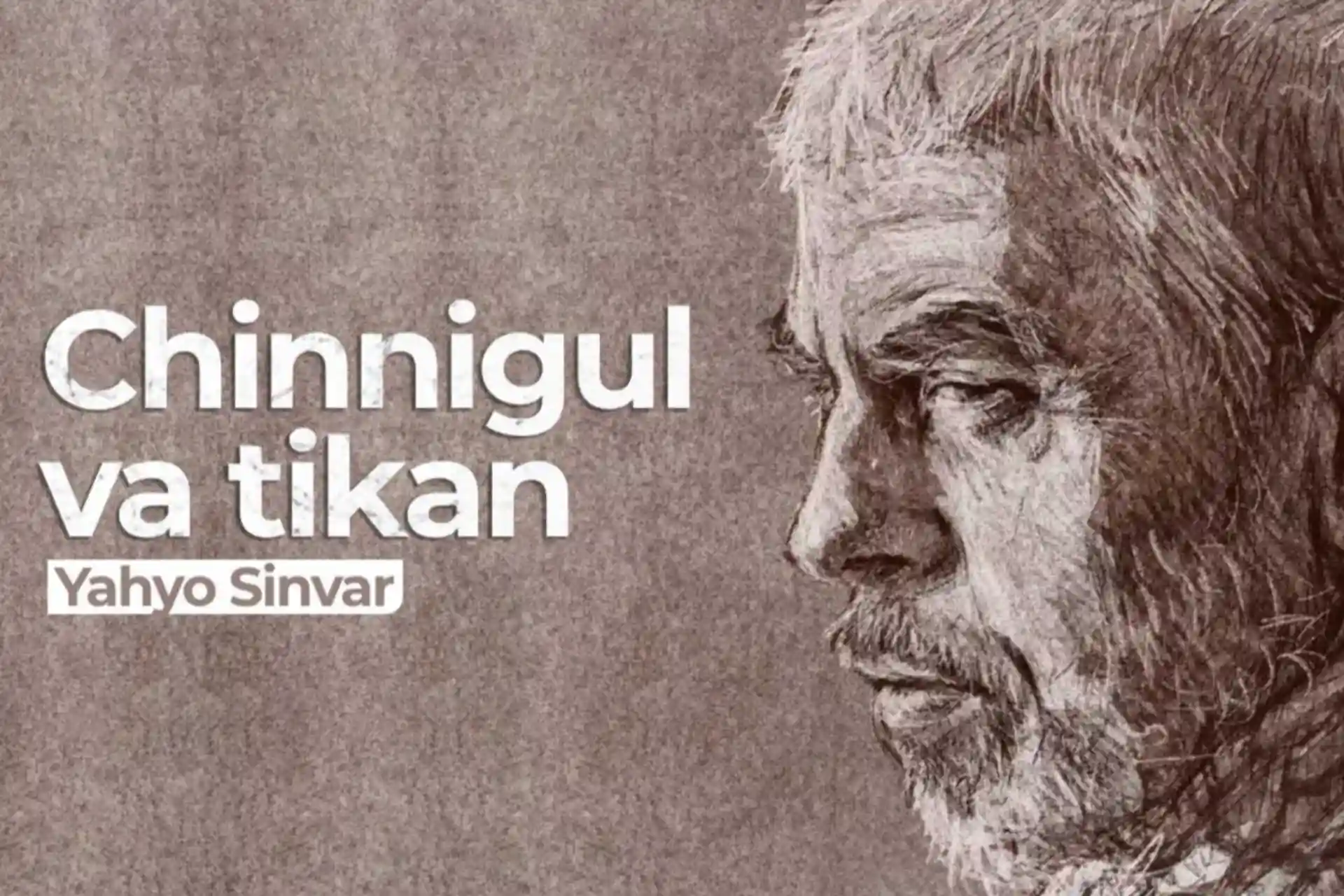04.03.2025 08:30
1767
"The Carnation and the Thorn" – Yahya Sinwar (story, part 35)
Life in the camp had developed and begun to change to the point where it was possible to think about it. Most households had one or two workers working in Israel. They barely made a living, and it was quite a difference compared to the old Gaza. Some workers went to Saudi Arabia and Kuwait to work. Every household had a radio and a television. You could even see people who had bought a refrigerator and a gas stove. Many houses had even been connected to the water pipe that had been laid in the neighborhood. We had also bought a radio, but we had not yet been lucky enough to get a television, a refrigerator, or a gas stove. Nevertheless, our situation was much better than many families living in poverty.
Importantly, in the last years after the tragedy of 1948, the camp population had increased, and the tents had become cramped. In particular, those who had been babies during the war had grown up, got married and had children. In short, the camps had become like a box with chicks. From then on, talk began to circulate about building new housing. According to rumors, anyone from the military authorities who wanted to expand their yard could register their name with the Ministry of Housing. After paying a certain amount, they could register a house in the area where the new housing would be built, provided that they demolished their yard in the camp.
This case caused heated discussions in the camps. People were divided on this issue. No matter what gathering, this topic was always brought up. Those who supported this idea said that we should adapt to reality, that we cannot live in a tent like canned fish.
Indeed, as new generations were born and grew up, it became impossible to live in this way. The problem was not in the construction of housing, but in the cost of buying it. Those who did not agree with this idea were worried that the occupier had an ulterior motive behind this. They were afraid that he was looking for a way to clear the camps of immigrants and completely subjugate them. The disputes continued. The purchase of new housing still remained a matter of talk. Because the two sides, divided, had to come to an agreement.
Importantly, in the last years after the tragedy of 1948, the camp population had increased, and the tents had become cramped. In particular, those who had been babies during the war had grown up, got married and had children. In short, the camps had become like a box with chicks. From then on, talk began to circulate about building new housing. According to rumors, anyone from the military authorities who wanted to expand their yard could register their name with the Ministry of Housing. After paying a certain amount, they could register a house in the area where the new housing would be built, provided that they demolished their yard in the camp.
This case caused heated discussions in the camps. People were divided on this issue. No matter what gathering, this topic was always brought up. Those who supported this idea said that we should adapt to reality, that we cannot live in a tent like canned fish.
Indeed, as new generations were born and grew up, it became impossible to live in this way. The problem was not in the construction of housing, but in the cost of buying it. Those who did not agree with this idea were worried that the occupier had an ulterior motive behind this. They were afraid that he was looking for a way to clear the camps of immigrants and completely subjugate them. The disputes continued. The purchase of new housing still remained a matter of talk. Because the two sides, divided, had to come to an agreement.
***
I didn't know there was such a thing as cosmetics for make-up until my brothers got married. My mother, like the other women in the camp, didn't use such products. I knew that the women in the camp only plucked their facial hair and thinned their eyebrows because of certain relationships.
These women, who could not find food for their daily living, who tasted meat only at weddings and ceremonies, who could not even distinguish the types and names of fruits, and who only learned that such fruits existed from biology books, were extremely beautiful, even though they did not wear makeup.
When a girl was married, it was common knowledge that women used cosmetics to beautify her. However, many women were unaware of this practice. When my brothers got married, I went into their room one day and saw cosmetics in front of the mirror, which is how I understood this.
We would not see a woman on the streets wearing a full headscarf and using such cosmetics. It is true that many women could not wear a headscarf, but the use of cosmetics was not customary. This situation continued until the economic situation of the people improved somewhat. In some families whose financial situation improved, a few women began to use such products.
The girls living in the camp were naturally beautiful. They didn't use any makeup or plastic surgery. They didn't even go to pluck their eyebrows or apply eyeliner. Even so, they were as beautiful as the full moon. Their best quality was modesty. If you spoke to someone or asked them a question, they wouldn't take their faces off the ground. If they accidentally caught sight of a stranger, they would immediately look away, their faces turning red and pale. This added even more elegance to their beauty.
Khalil is the son of one of the neighbors. He had laid eyes on one of the girls living in the camp and had become attached to her. He felt like he was in love, he was surrounded by various emotions. After that, he began to wait for that girl to come from home to school and from school to home. But he never dared to go near her or say a word. Most of the time, he was content with just glancing at her from afar.
If their eyes met by chance, they would both immediately turn their faces away and walk away. This continued until a matchmaker was appointed and it was agreed that the wedding would take place after she graduated. The young man also decided to wait until he found a good job and could support a family.
As was not the case with rice cakes, it was also possible to meet some young men and women exchanging letters. But such daredevils were a minority, most young men and women followed the general rules of society. They were wary of such relationships. Following my mother's strict orders, we also stayed away from such things.
One day, as I was returning home from the beach, I saw my cousin Ibrahim coming back from the mosque at the beginning of the neighborhood. I could see him, but he couldn't see me. At the beginning of the street, one of those bold, shameless girls started talking to Ibrahim about something.
When I looked at Ibrahim, his face was red with embarrassment. He walked three times faster, as if he were escaping a long prison sentence. This incident put Ibrahim in an awkward position.
If he contradicted me, I would threaten to tell his daughter-in-law (my mother). She would be very embarrassed by this.
I didn't know there was such a thing as cosmetics for make-up until my brothers got married. My mother, like the other women in the camp, didn't use such products. I knew that the women in the camp only plucked their facial hair and thinned their eyebrows because of certain relationships.
These women, who could not find food for their daily living, who tasted meat only at weddings and ceremonies, who could not even distinguish the types and names of fruits, and who only learned that such fruits existed from biology books, were extremely beautiful, even though they did not wear makeup.
When a girl was married, it was common knowledge that women used cosmetics to beautify her. However, many women were unaware of this practice. When my brothers got married, I went into their room one day and saw cosmetics in front of the mirror, which is how I understood this.
We would not see a woman on the streets wearing a full headscarf and using such cosmetics. It is true that many women could not wear a headscarf, but the use of cosmetics was not customary. This situation continued until the economic situation of the people improved somewhat. In some families whose financial situation improved, a few women began to use such products.
The girls living in the camp were naturally beautiful. They didn't use any makeup or plastic surgery. They didn't even go to pluck their eyebrows or apply eyeliner. Even so, they were as beautiful as the full moon. Their best quality was modesty. If you spoke to someone or asked them a question, they wouldn't take their faces off the ground. If they accidentally caught sight of a stranger, they would immediately look away, their faces turning red and pale. This added even more elegance to their beauty.
Khalil is the son of one of the neighbors. He had laid eyes on one of the girls living in the camp and had become attached to her. He felt like he was in love, he was surrounded by various emotions. After that, he began to wait for that girl to come from home to school and from school to home. But he never dared to go near her or say a word. Most of the time, he was content with just glancing at her from afar.
If their eyes met by chance, they would both immediately turn their faces away and walk away. This continued until a matchmaker was appointed and it was agreed that the wedding would take place after she graduated. The young man also decided to wait until he found a good job and could support a family.
As was not the case with rice cakes, it was also possible to meet some young men and women exchanging letters. But such daredevils were a minority, most young men and women followed the general rules of society. They were wary of such relationships. Following my mother's strict orders, we also stayed away from such things.
One day, as I was returning home from the beach, I saw my cousin Ibrahim coming back from the mosque at the beginning of the neighborhood. I could see him, but he couldn't see me. At the beginning of the street, one of those bold, shameless girls started talking to Ibrahim about something.
When I looked at Ibrahim, his face was red with embarrassment. He walked three times faster, as if he were escaping a long prison sentence. This incident put Ibrahim in an awkward position.
If he contradicted me, I would threaten to tell his daughter-in-law (my mother). She would be very embarrassed by this.



